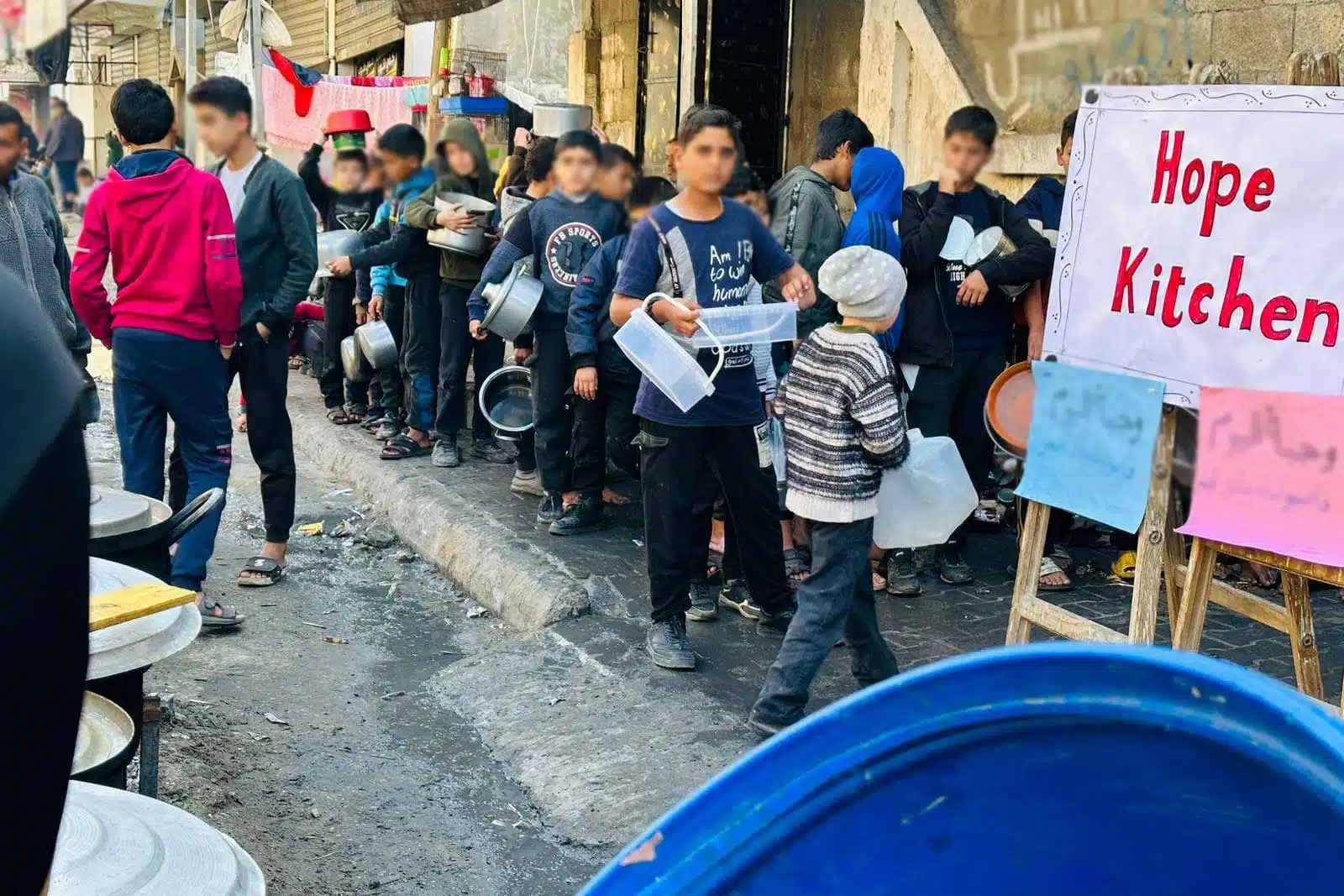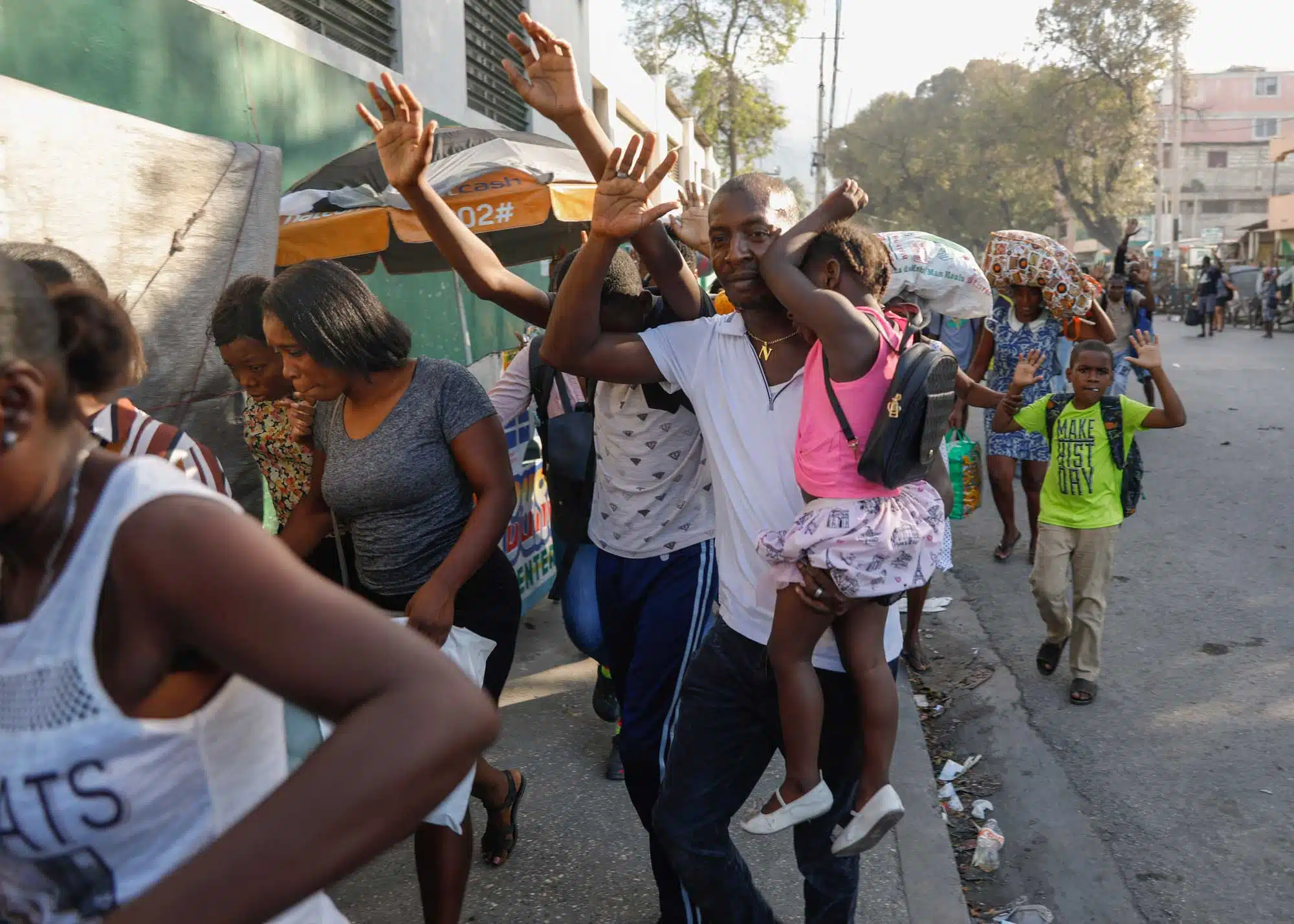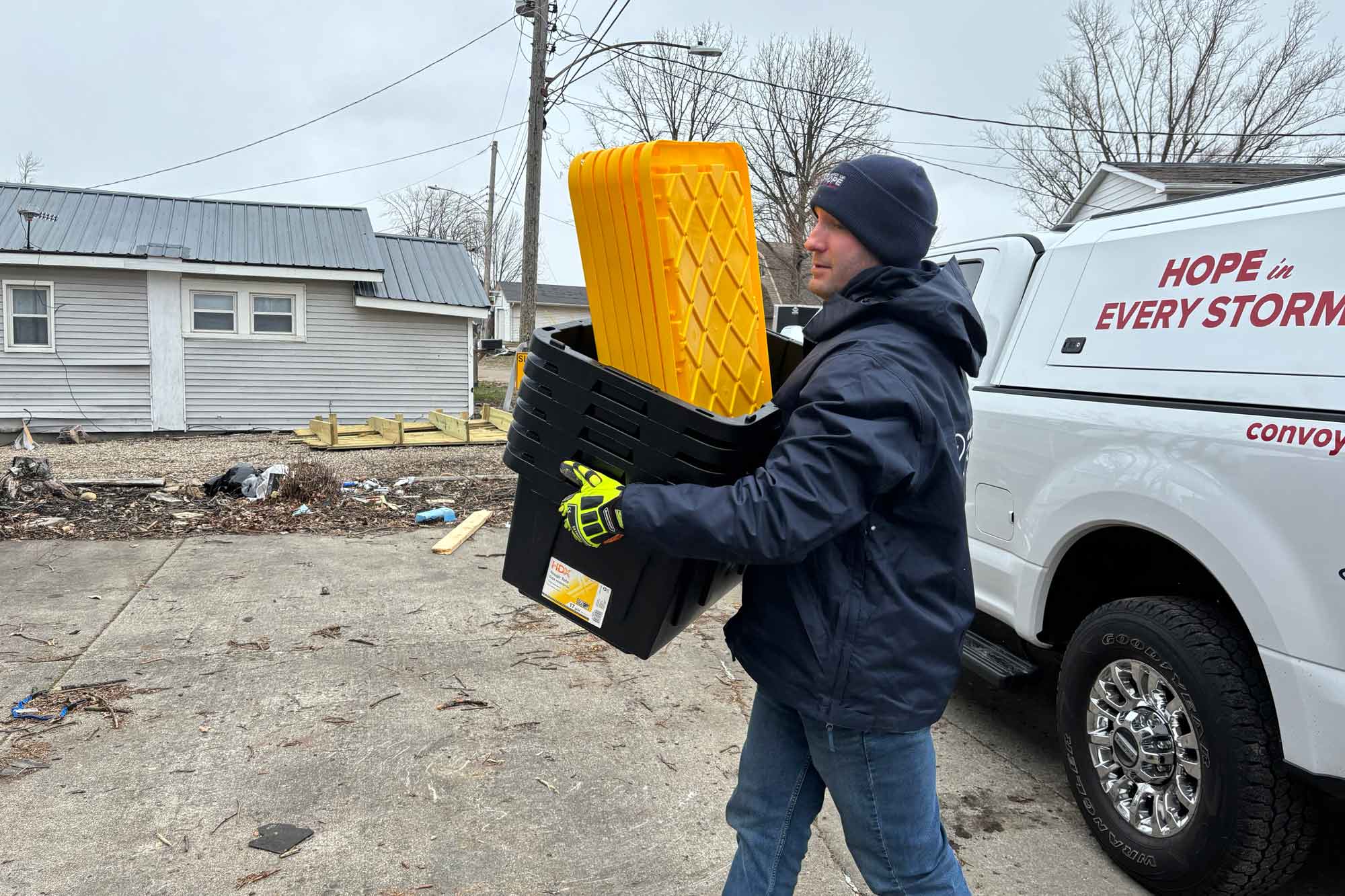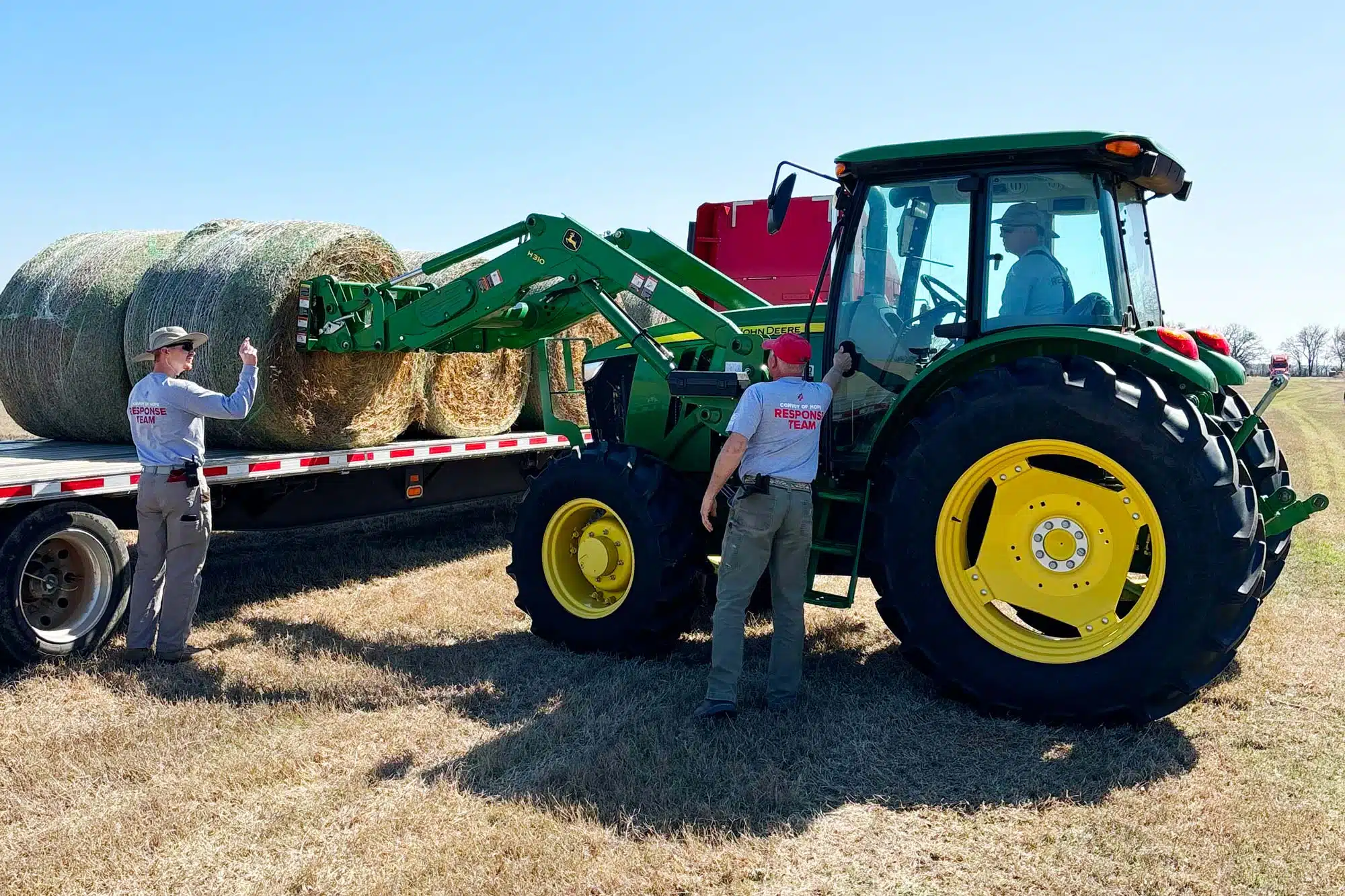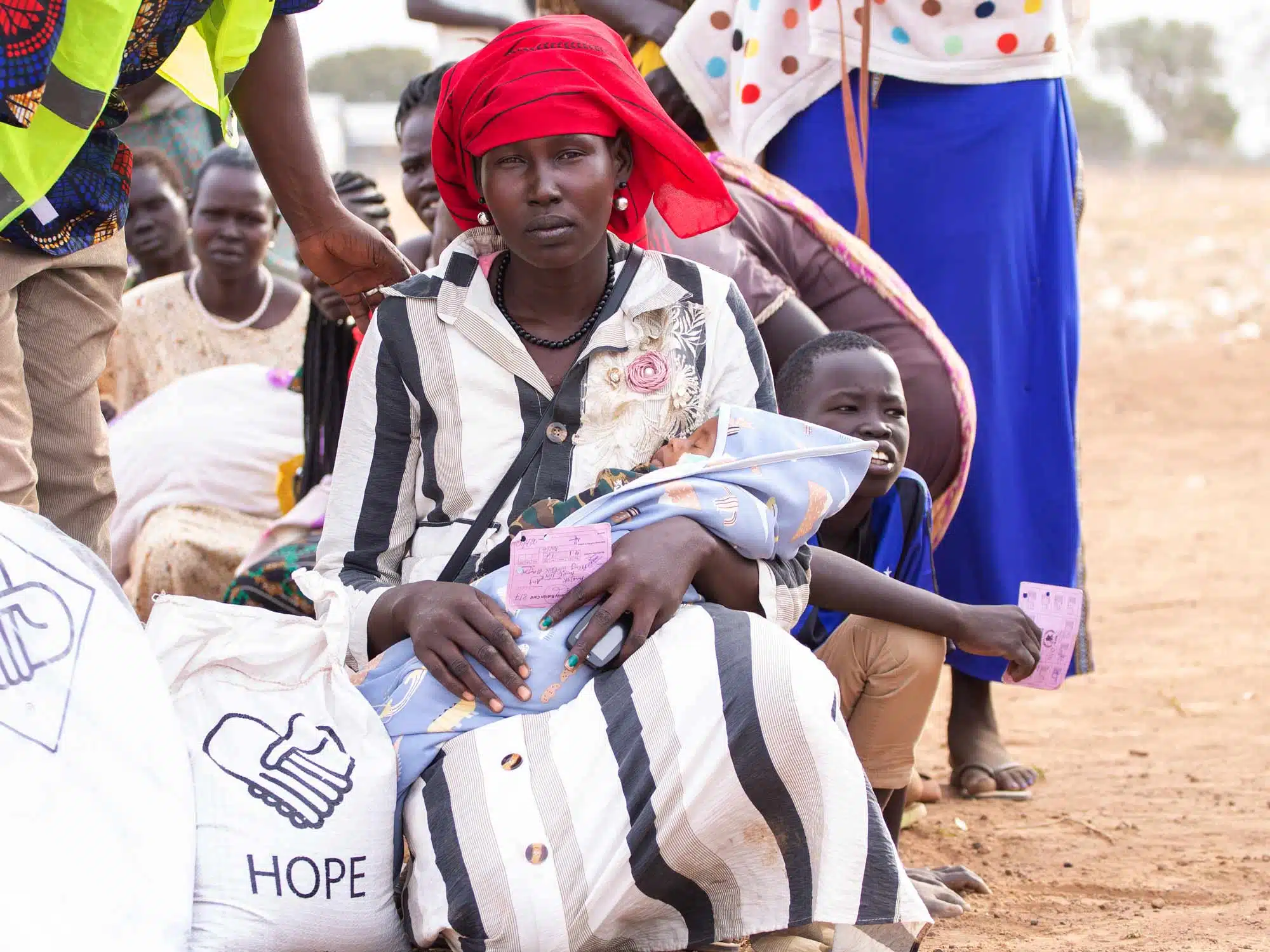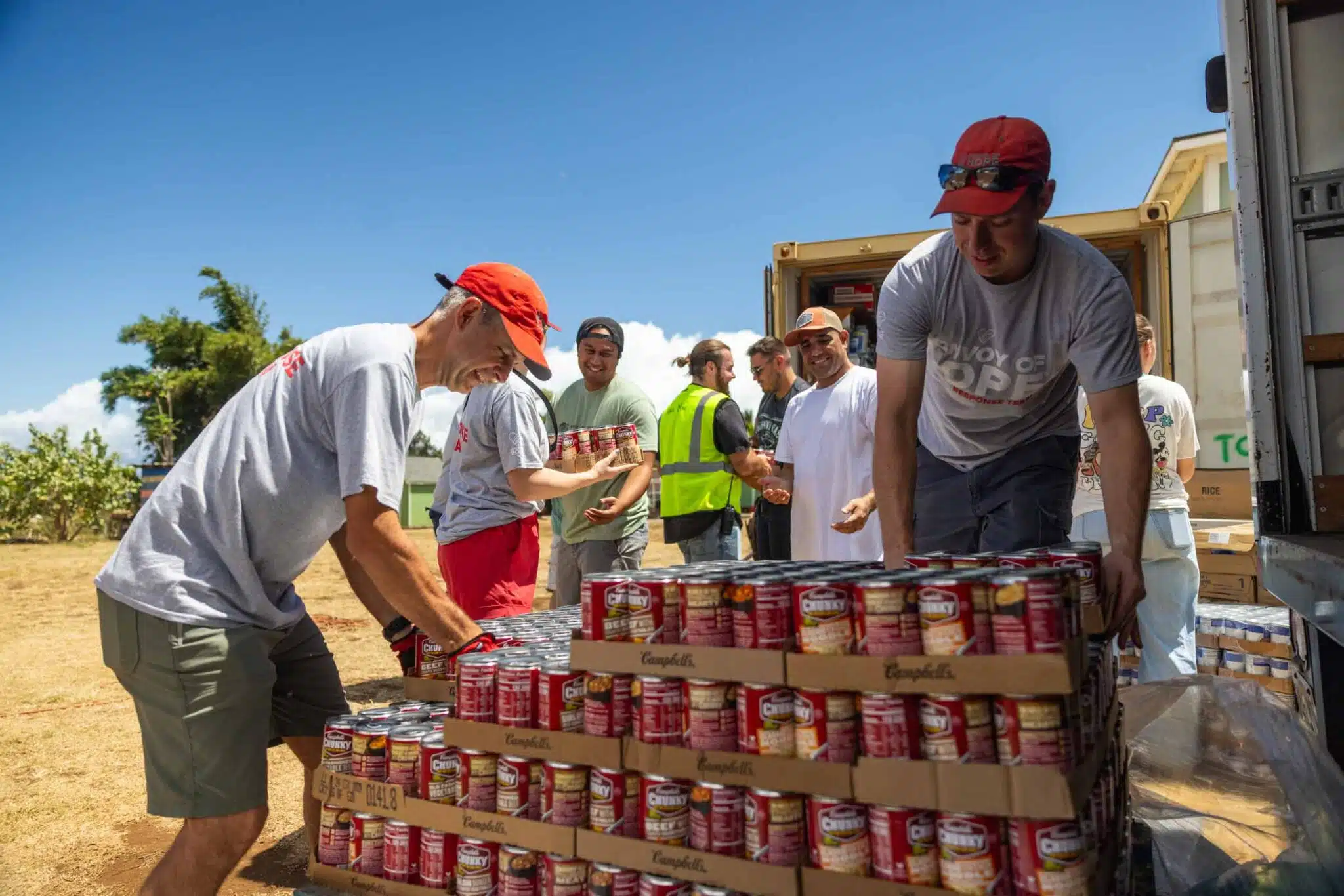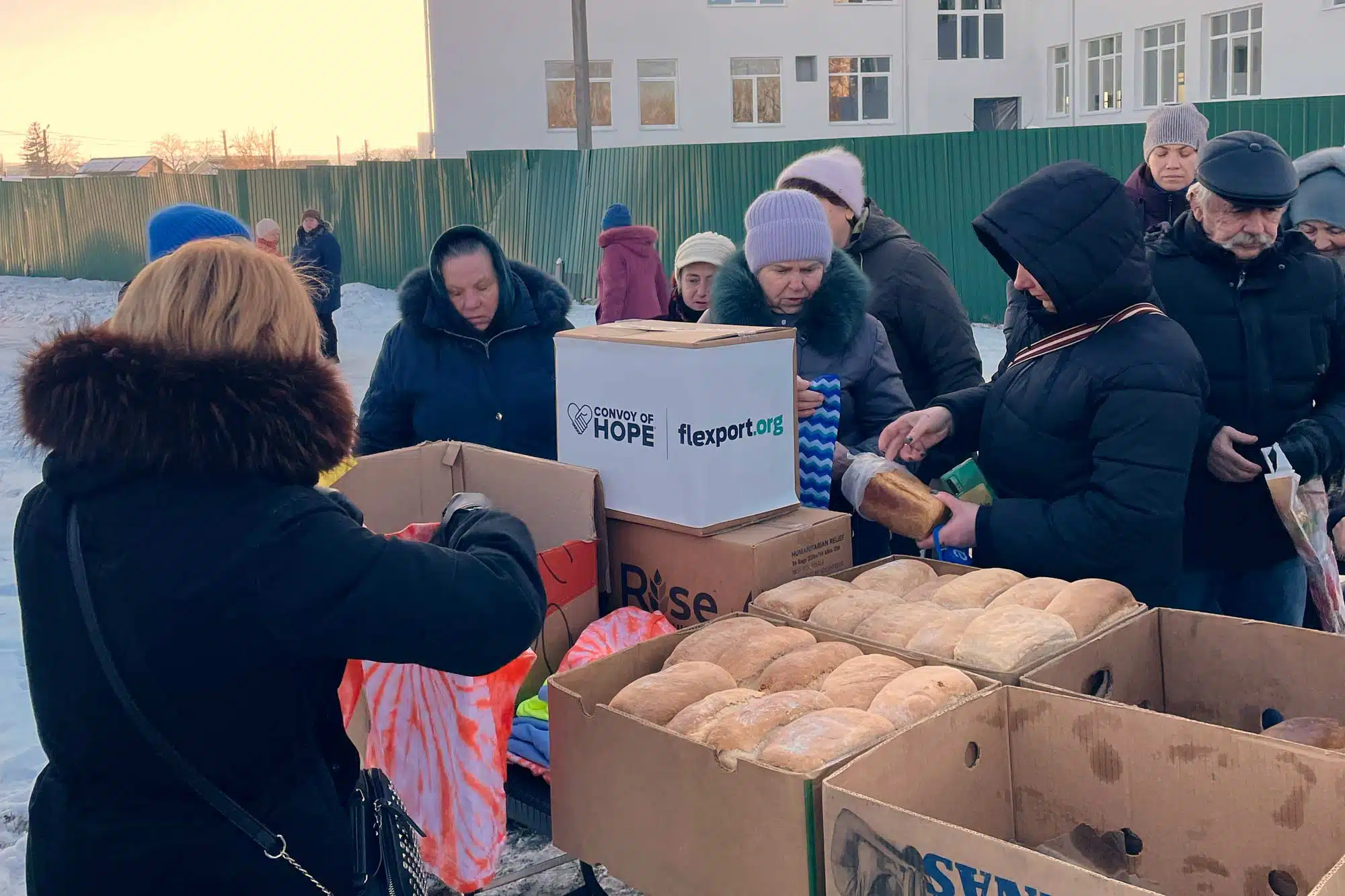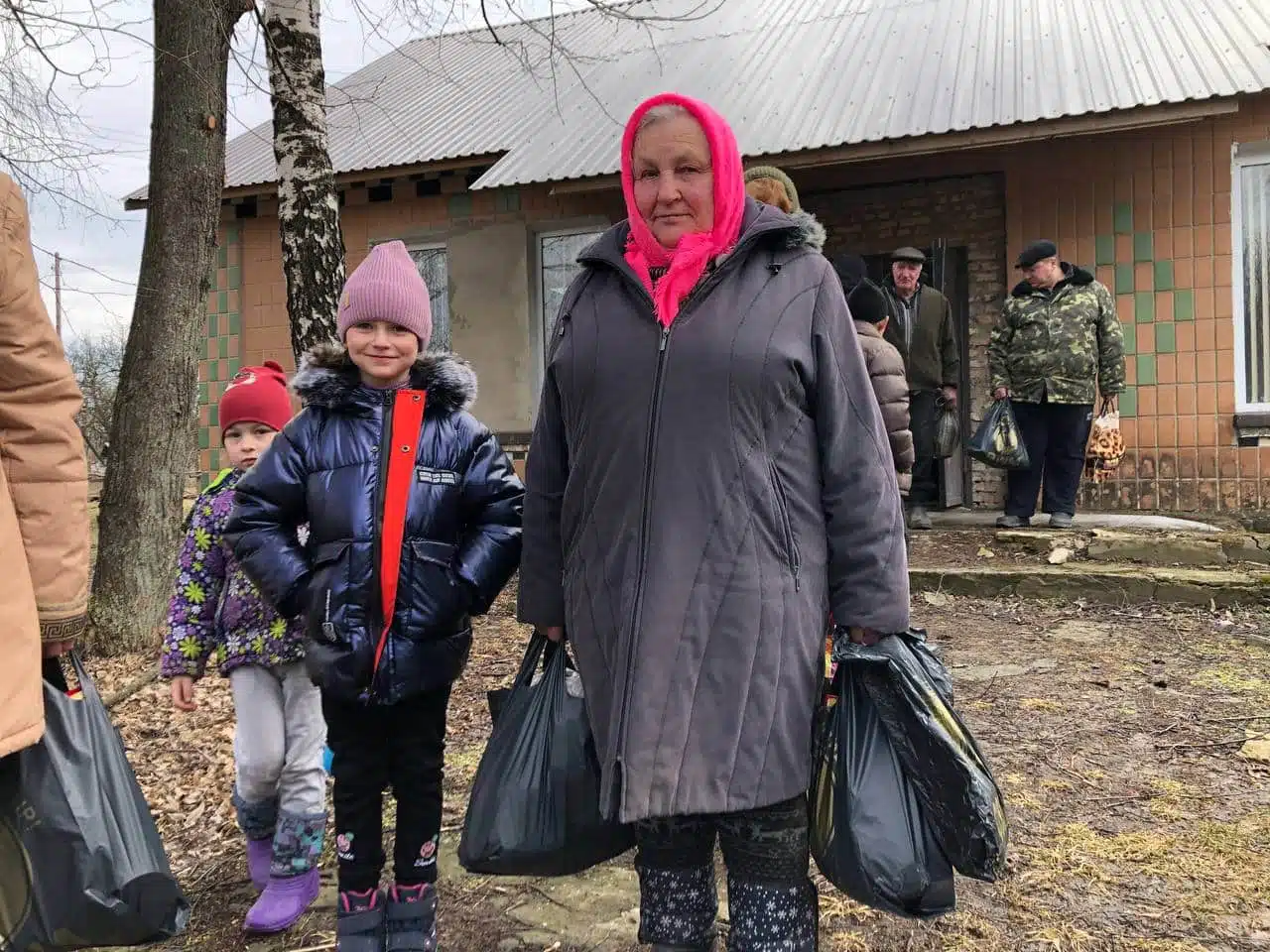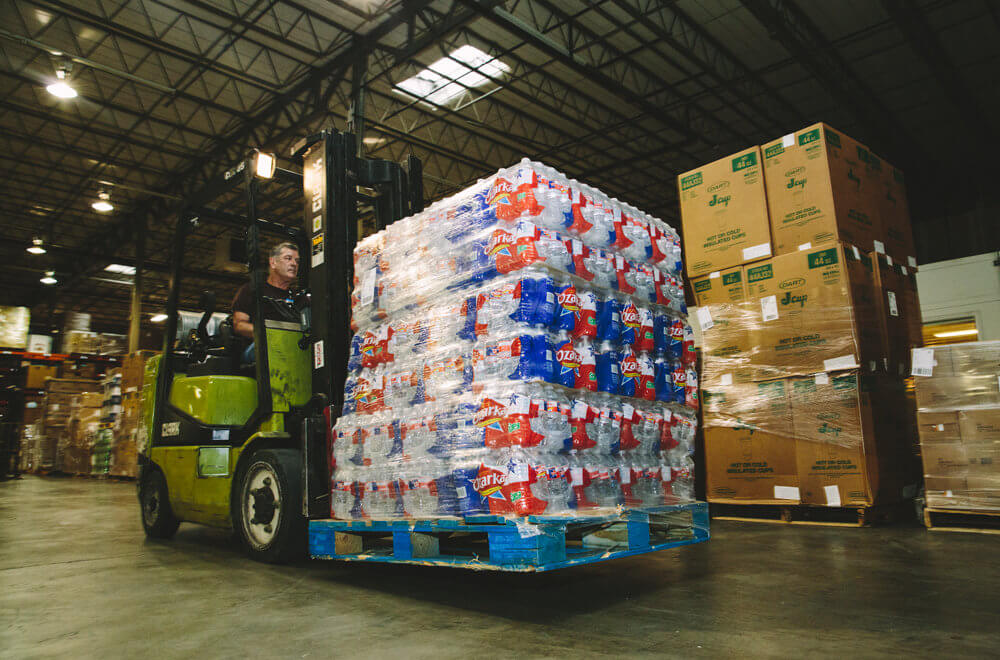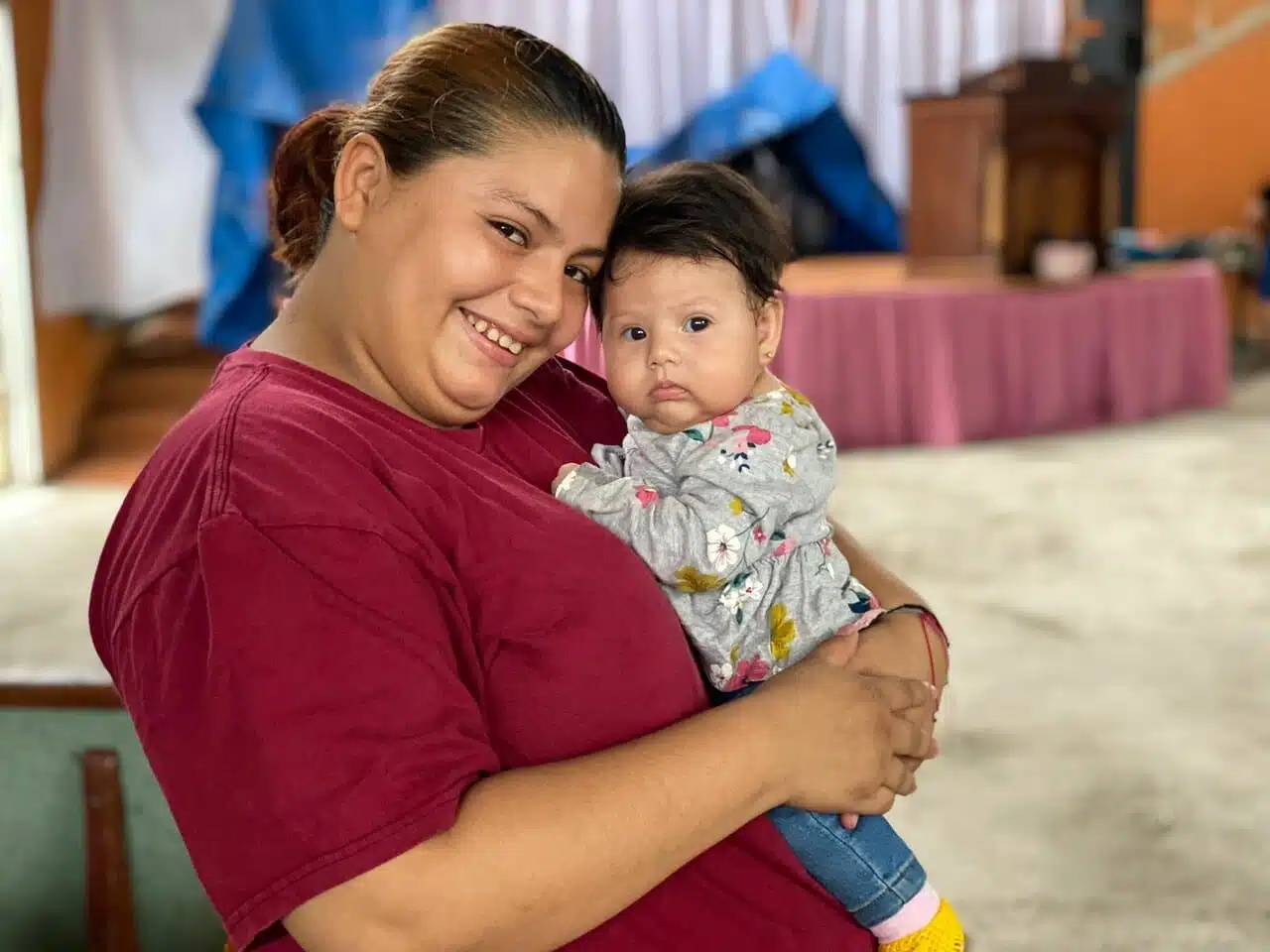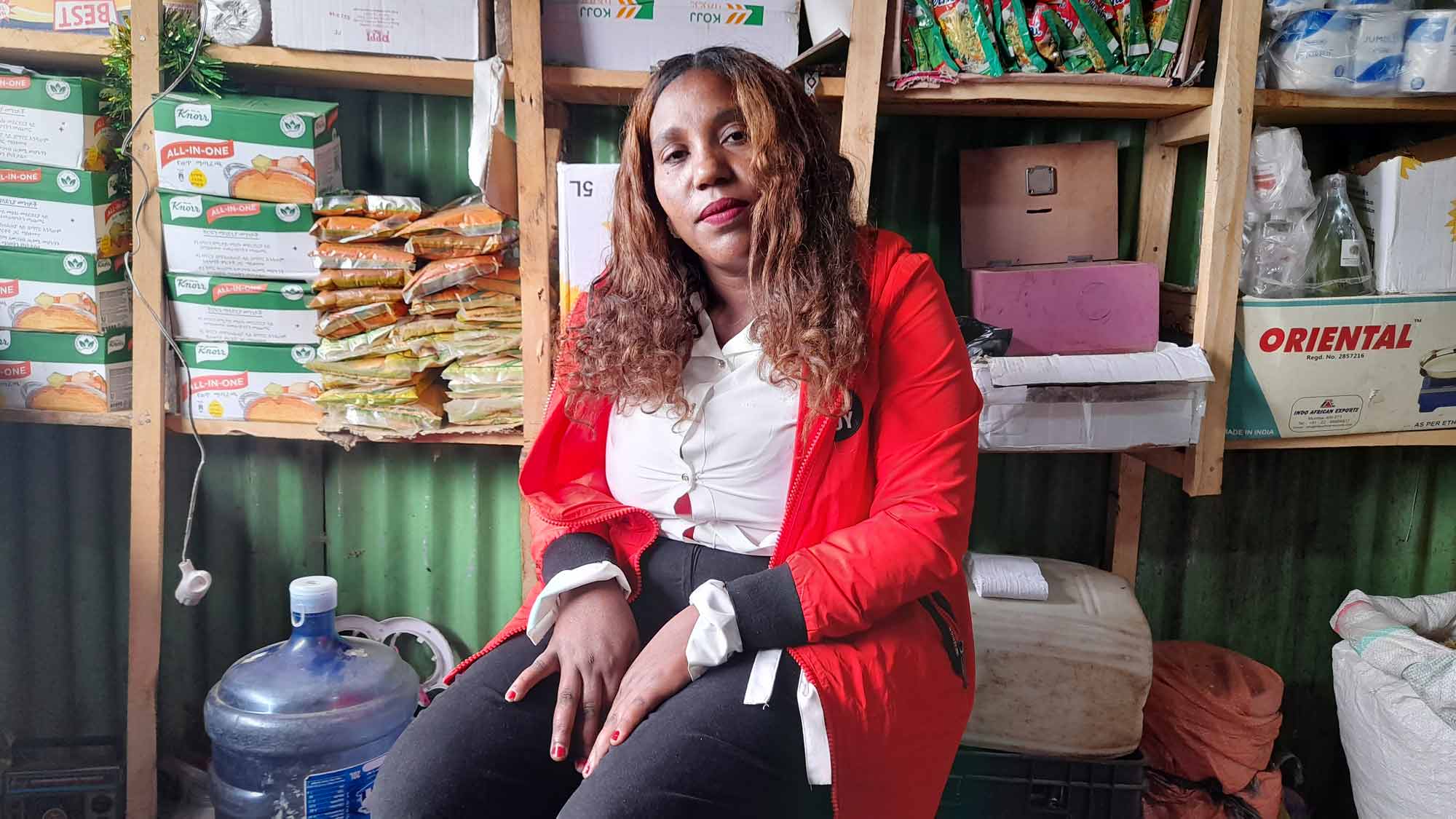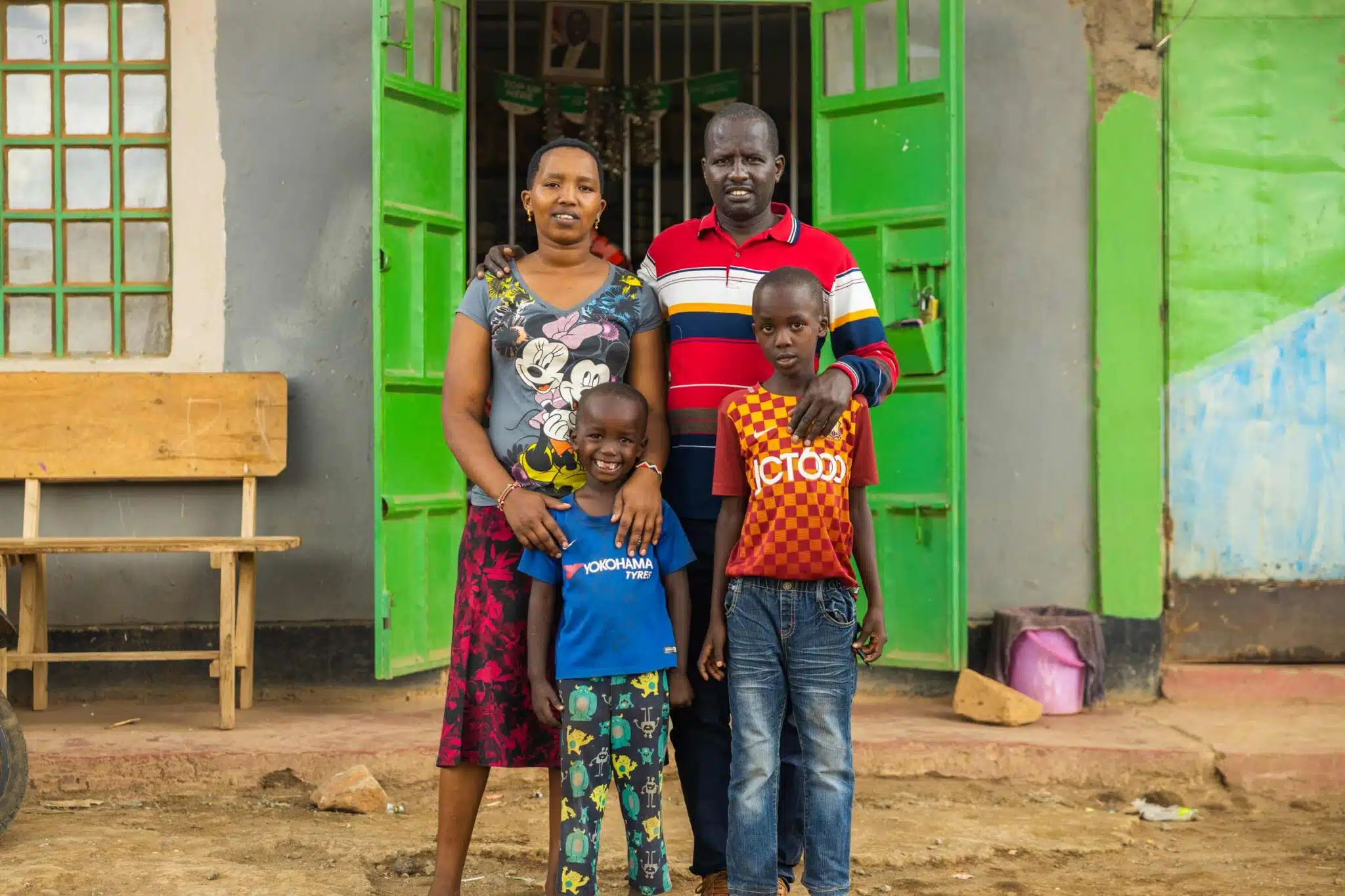
Moriah Peters Smallbone is a Mexican-American recording artist, actress, and academic. Her sophomore album, BRAVE, hit number nine on Billboard’s Christian Music Charts, and she has toured with acts such as MercyMe and Tenth Avenue North. She has since launched TRALA, an alternative, all-female band. She is married to Joel Smallbone, a member of the Christian pop duo for KING & COUNTRY.
Moriah recently spoke with Doree Donaldson, Vice President of Convoy:Women, about her partnership with Convoy of Hope. Below are excerpts from their conversation.
DOREE: How did you connect with Convoy of Hope?
MORIAH: I first started following Convoy of Hope very much from a distance. I think I saw something on Twitter and thought, “Oh cool. I love what they do.” Then I was performing at a church, and someone I was with offered to introduce me to you, Doree. It was refreshing to realize that you didn’t just preach kindness because you are a part of Convoy of Hope — it’s actually who you are.
DOREE: I know authenticity is important to you and your husband, Joel.
MORIAH: What Joel says from the stage is truly what he lives out, and I have the honor of getting to see that firsthand. I certainly try to live with that same level of integrity and authenticity.
DOREE: I’m curious to know how you even got involved in the industry to start with. Tell us a little bit of that story.
MORIAH: It honestly boils down to the support of my parents.
As a kid I didn’t have a very pleasant voice, but I loved singing, so I would sing backup for my sister and we’d harmonize. I was the one in the background and, to be honest, to this day that’s still my favorite place to be — it’s why I love singing in church with a choir when I can just be a small part of the big picture.
My father, although he was a judge for 30 years, played the bass and always had a very refined musical taste. Growing up we weren’t allowed to listen to certain genres due to the musicality not being up to par. I grew up on a lot of jazz and funk, R&B, and soul. My parents put me in singing lessons when I was 7 or 8 years old and would take me to anything that provided an opportunity for me to sing, from soccer games to chili cook-offs. They bent over backwards for me. And what’s sweet is I don’t think they ever really thought I would or could make a career of it — they just saw that I loved it and wanted to support me.
As I got a bit older, I was very focused on school. I had a scholarship to go to Cal State Fullerton and got accepted into the pre-law program there. I wanted to be a lawyer and was determined to follow in my father’s footsteps, but right after High School graduation there were opportunities stirring in Nashville. It was the first major crossroads I had ever experienced in life. If it weren’t for my parents being so gracious and encouraging, and my dad painting a realistic picture for me, I’m not sure where I would be. He encouraged me to explore the doors that were opening in Nashville, and to view them as something I had the power to investigate. It was their support that really helped me dive in and move to Nashville at age 17. I started living in people’s basements and couch surfing. I signed a record deal and then toured, and it has been the most adventurous, eventful, decade-long experience of my life.
It was at times difficult to be away from family, but my mom actually just moved out to Nashville and so my family is together again. It’s so wonderful at the age I am at now to get to experience the relationship with her in a new way. I am able to see her as a fellow woman, and vice versa. She’s sharing things that are new to me, and I’m doing the same. It can be painful for her to hear, as a loving, protective mother, about some of the hard experiences I had when I was younger. And yet I’ve realized that every scarring experience — every hurtful, terrifying experience — was helping me grow in my identity, and to build a deeper foundation for my faith. I am grateful through it all to have kept my passion for music and my desire to make an impact, specifically in women’s empowerment.
DOREE: I’ve loved seeing your passion for women’s empowerment.
MORIAH: It goes back to my high school days. I went to a large public school in Southern California. It was so diverse in its makeup and that made for a truly invaluable experience. During that time, I started a small Bible study for girls. By my senior year, it was standing room only. That experience allowed me to see the power of creating a safe space for women and girls to come together. I think that experience was so fulfilling and shaping for me that it set me on a path — a trajectory — to care about women’s empowerment.
These days, I seize opportunities to work with other female musicians, to interview other women and share their stories, and to see and support women’s empowerment work internationally.
DOREE: How did you get involved with Convoy of Hope’s programming for women?
MORIAH: It was through research on social media, believe it or not. I was looking at the different Twitter accounts for various philanthropic organizations, and there was something different about Convoy of Hope. I felt like there was no bias there. Convoy of Hope doesn’t give help to people to get something in return, but for the sake of giving. In every connection I’ve had with Convoy, I’ve seen a commitment to excellence and a desire to give your best for others based on the belief that they deserve the best.
DOREE: You’ve seen Convoy of Hope up close. Any experiences stand out?
MORIAH: When I was in El Salvador, I got to witness a Girls’ Empowerment graduation ceremony. It was so reminiscent of my quinceañera. In Hispanic culture, the quinceañera is a massive event. I tell people that my quinceañera was bigger than my wedding! But that’s because the quinceañera is so symbolic of stepping into womanhood. I remember being 15 years old, surrounded by so many witnesses, as my parents speaking about my value and my worth.
That day in El Salvador, I got to share in their moment as they were told that they are priceless. Many of the messages my mother taught me may never be taught to these girls except by teachers in this program. This is an opportunity for these girls to establish a trajectory for their lives and transform their future legacies. It’s amazing to see how Convoy is creating safe spaces for women and girls around the world.
DOREE: That’s so powerful. And you’re right, it’s not just about these girls but about their children and so on.
MORIAH: Absolutely. I had the opportunity to share with these girls how that moment — their Girl’s Empowerment graduation ceremony — was one from which future generations would benefit. I told them how I learned many of the lessons they had learned when I was a young girl, too: what it means to be patient and wait for the right opportunities, to pursue greater education, and how to set goals.
Going into the graduation ceremony I had an understanding of the reality — that most of these girls would not have the chance to learn these lessons except through the Girl’s Empowerment program. That’s why it was so special for me to see firsthand how Convoy steps in, in a Godmother-like role, almost, to just speak this life into these girls and empower them to break generational chains.
In my own life I’ve seen how all it takes is just one person choosing to do things differently to break generational chains. My mother did that when she chose a different trajectory for her life.
DOREE: Tell us a little more about your mother.
MORIAH: She was the first person in her family to leave El Paso and the first to pursue higher education. She was also a trailblazer in that she made wise decisions and avoided the teen pregnancy that had become practically the standard in the family. Even with her faith, she was a pioneer and has faced opposition throughout her journey. Yet it has been her faith that has grounded her and helped her follow a different path.
DOREE: She sounds like an incredible trailblazer.
MORIAH: Yes, that’s a perfect characterization. She had to really stand up for herself and defend this new hope and way of life she had set for herself. And I can only imagine it’s just a taste of what some women and girls around the world face when they are choosing to view themselves differently than their culture, when they choose to go against the social norms of their communities and even families.
DOREE: It’s interesting that a moment ago you mentioned teen pregnancy as something that was common in your family. Teenage pregnancy is so prevalent and a real issue in El Salvador and so many of the countries where Convoy serves.
MORIAH: Yes, it is a genuine and pressing issue today. I know for me having my mother’s example was invaluable in terms of how that influenced me to make wise decisions in my own life. Going back to not just the Girl’s Empowerment program, but all of Convoy’s Women’s Empowerment programming — the power of a woman to influence the women around her, her family members, and an entire community, can’t be underestimated.
To learn more about Convoy:Women, click here.
To learn more about Convoy of Hope’s Women’s Empowerment program, click here.
